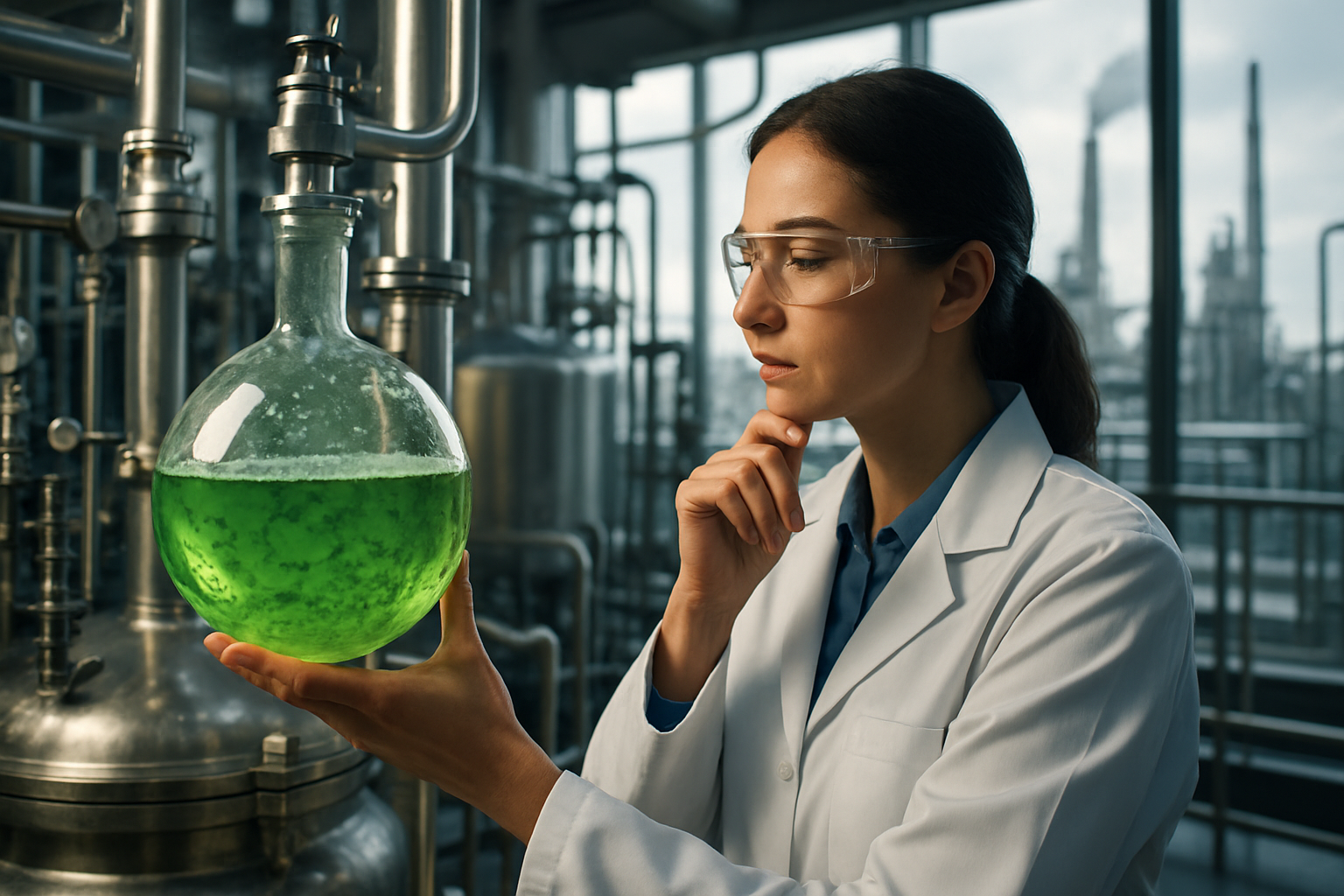Biocatalysis: Revolutionizing Industrial Processes
Harnessing the power of nature's own catalysts, biocatalysis is reshaping industrial processes across sectors. This innovative approach leverages enzymes and whole-cell systems to drive chemical reactions, offering unprecedented efficiency and sustainability. As industries seek greener alternatives and improved production methods, biocatalysis emerges as a game-changing solution with far-reaching implications for manufacturing, pharmaceuticals, and beyond.

The field gained momentum in the late 20th century as advances in biotechnology, particularly genetic engineering and protein engineering, allowed for the production and modification of enzymes on an industrial scale. These developments enabled the creation of enzymes tailored for specific industrial processes, dramatically expanding the potential applications of biocatalysis.
Advantages Over Traditional Catalysis
Biocatalysts offer several distinct advantages over their traditional chemical counterparts. Enzymes typically operate under mild conditions—moderate temperatures, atmospheric pressure, and neutral pH—reducing energy requirements and equipment costs. They also exhibit exceptional selectivity, often producing a single desired product without unwanted by-products, which simplifies purification processes and reduces waste.
Moreover, biocatalysts are biodegradable and derived from renewable resources, aligning with growing demands for sustainable industrial practices. Their high specificity often translates to improved product quality and purity, a critical factor in industries like pharmaceuticals where stringent quality standards are paramount.
Applications Across Industries
The versatility of biocatalysis has led to its adoption across a wide range of industries. In the pharmaceutical sector, biocatalysts are increasingly used in the synthesis of complex drug molecules, offering routes to compounds that might be challenging or impossible to produce through traditional chemical methods.
In the food industry, biocatalysts play a crucial role in the production of flavors, sweeteners, and nutritional supplements. For instance, the production of high-fructose corn syrup, a common sweetener, relies on enzymatic processes that convert glucose to fructose.
The textile industry has also embraced biocatalysis, using enzymes in processes like denim stonewashing and fabric softening. These biological alternatives reduce water and energy consumption while minimizing the use of harsh chemicals.
Overcoming Challenges in Biocatalysis
Despite its many advantages, biocatalysis faces several challenges that researchers and industry professionals are actively addressing. One primary concern is the stability of enzymes under industrial conditions. Many enzymes are sensitive to temperature, pH, and other environmental factors, limiting their application in certain processes.
To combat this, scientists are employing techniques like protein engineering and immobilization to create more robust enzymes. Immobilization, which involves attaching enzymes to solid supports, can enhance stability and allow for enzyme reuse, improving the economic viability of biocatalytic processes.
Another challenge lies in scaling up biocatalytic processes from the laboratory to industrial production. This often requires significant optimization and may involve adapting existing equipment or developing new reactor designs tailored to biocatalytic reactions.
The Future of Biocatalysis in Industry
As research in biocatalysis continues to advance, its potential applications are expanding. One promising area is the development of cascade reactions, where multiple enzymes work in sequence to carry out complex transformations. This approach mimics natural biosynthetic pathways and could lead to more efficient, one-pot synthesis of complex molecules.
The integration of biocatalysis with other emerging technologies, such as continuous flow chemistry and artificial intelligence, is also opening new avenues for innovation. AI-driven enzyme engineering, for instance, could accelerate the development of tailored biocatalysts for specific industrial applications.
Key Insights for Implementing Biocatalysis
• Start with a thorough assessment of your current processes to identify potential applications for biocatalysis
• Collaborate with academic institutions or specialized biotech firms to access cutting-edge enzyme technologies
• Invest in pilot-scale testing to optimize biocatalytic processes before full-scale implementation
• Consider the entire lifecycle of your biocatalytic process, including enzyme production, use, and disposal
• Stay informed about regulatory requirements, especially in industries like pharmaceuticals where biocatalysis may impact drug approval processes
In conclusion, biocatalysis represents a paradigm shift in industrial processing, offering a sustainable, efficient alternative to traditional chemical methods. As industries continue to prioritize sustainability and efficiency, the role of biocatalysis is set to grow, driving innovation and reshaping manufacturing across sectors. By embracing this technology, businesses can not only improve their environmental footprint but also gain a competitive edge in an increasingly eco-conscious market.






